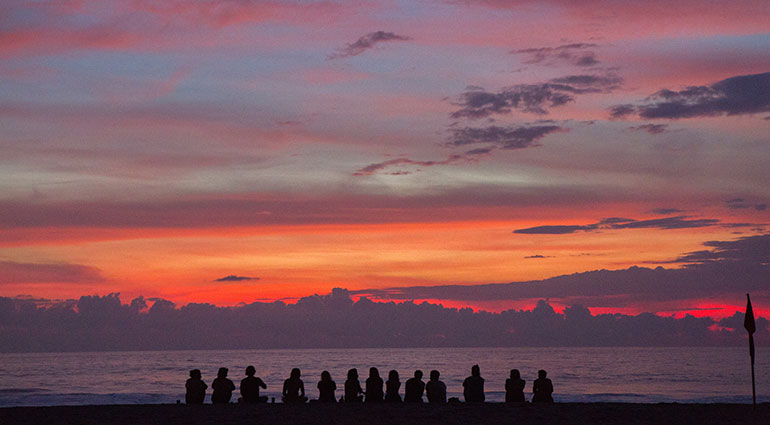Using acoustic astronomy, scientists can observe and listen to the sounds and pulses of space. They’ve found that stars don’t orbit in silence in the mysterious night sky, but rather generate music. Like humpback whale sounds, the resonance of stars exists at wavelengths or frequencies that may not be heard by the human ear. Yet, the music of stars and whales and other creatures combine to create a symphony that proclaims the greatness of God.
Psalm 19:1–4 says, “The heavens declare the glory of God; the skies proclaim the work of his hands. Day after day they pour forth speech; night after night they reveal knowledge. They have no speech, they use no words; no sound is heard from them. Yet their voice goes out into all the earth, their words to the ends of the world.”
In the New Testament, the apostle Paul reveals that in Jesus “all things were created: things in heaven and on earth, visible and invisible . . . all things have been created through him and for him” (Colossians 1:16). In response, the natural world’s heights and depths sing to its Maker. May we join creation and sing out the greatness of the One who “with the breadth of his hand marked off the [vast] heavens” (Isaiah 40:12).
How great You are, O God! Open my eyes to see You in creation’s majesty and open my heart to offer the praise You deserve.
Welcome to Remi Oyedele! Meet all our authors at odb.ca/authors.
INSIGHT
Psalm 19 celebrates God’s revealing of Himself to humanity through creation (vv. 1–6; often referred to as general revelation), and through Scripture (vv. 7–11; often referred to as special revelation). Interestingly, verses 1–6 use the general title for God (El), while in verses 7–14 the speaker chooses the personal title for God in the Old Testament of YHWH (“the
Although creation powerfully and wordlessly reveals God’s care and power over all creation (vv. 2, 3, 6), this psalm paints a picture of how through Scripture God reveals Himself more intimately, in a way that transforms our lives (vv. 7–11). And, knowing our weaknesses, the psalmist confesses that this growth in intimacy with God is only possible through grace (vv. 12–14). God reveals Himself, not only through creation and Scripture, but through powerfully redeeming His people (v. 14).











